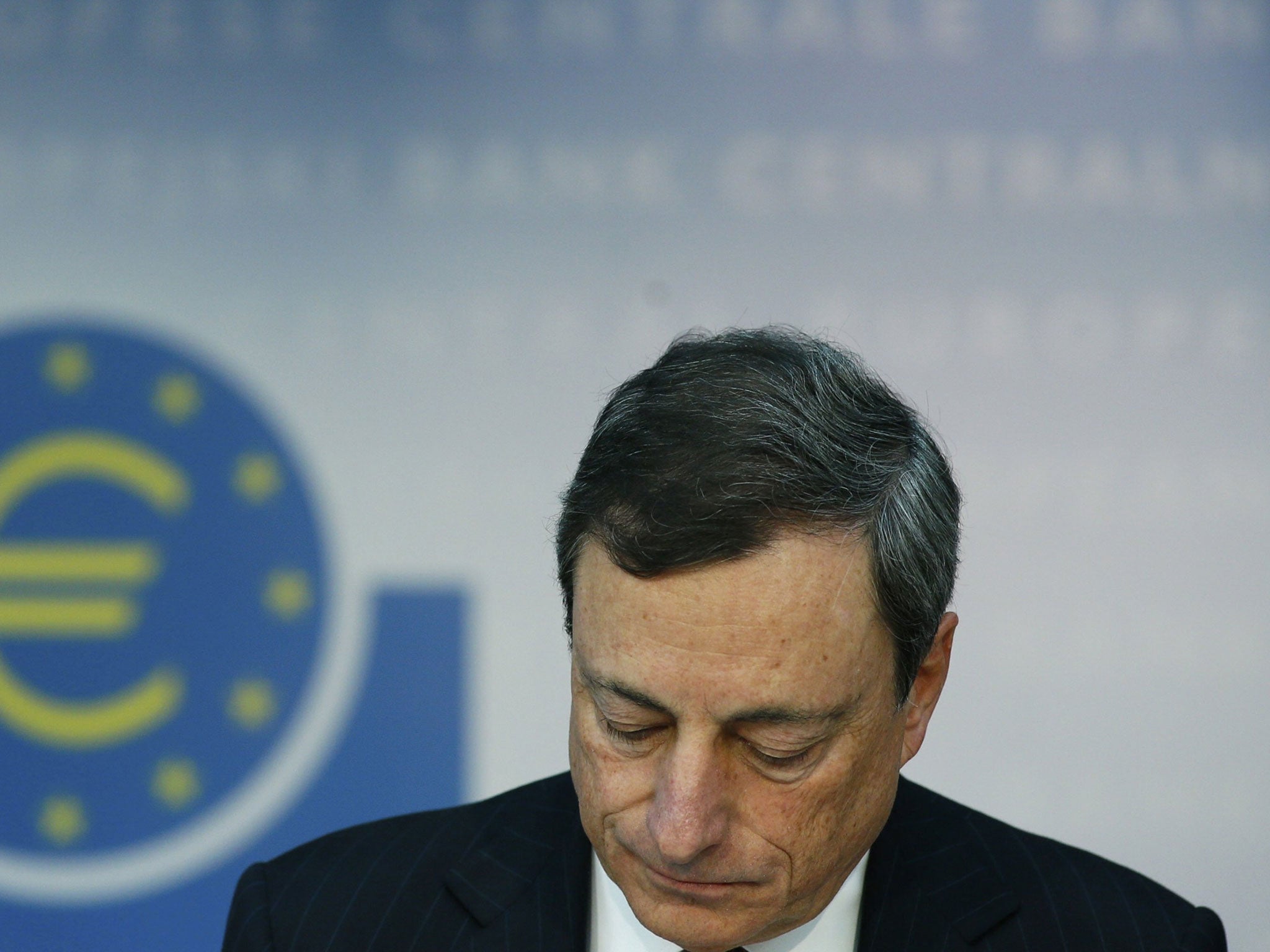The European Central Bank has left interest rates unchanged, admitting it has discussed a number of policy options in case the eurozone fails to emerge from recession later in the year.
Mario Draghi, the President of the ECB, said economic conditions do not yet warrant moves such as fining banks for parking money with it overnight, but these and other unconventional measures to fire up the market for asset-backed securities and tweaks to its collateral framework were “on the shelf”.
Speaking at a news conference, Draghi said: “There was a common assessment that the changes that have taken place are not sufficiently one-directional as to grant action now… Having said that, as I said before, we stand ready to act.”
While, a majority of 81 economists polled by the Reuters news agency had expected the 23-man Governing Council to keep rates on hold, the euro hit near-one-month highs against the dollar after Draghi ruled out negative rates.
Coutts strategist James Butterfill said: “There are really two key points that we are disappointed with. The first one is that he feels the economy doesn't need negative rates right now and secondly there was some hope that he might discuss the option of asset backed securities and that seems a long way away”.
He added: “Despite improvement in PMIs recently, the economy is still very weak”.
Purchasing managers index surveys showed euro zone business activity shrank in May, but at a slightly slower pace. Downturns have eased in France, Italy and Spain, and Germany is stabilising, the data showed.
Stressing that ECB policy “will remain accommodative for as long as necessary”, Draghi nonetheless gave no indication that the bank was close to taking fresh policy action.
The ECB slightly lowered its economic outlook for the euro area this year, saying output would decline by 0.6 per cent in 2013 but grow by 1.1 per cent next year. ECB staff forecast inflation of 1.4 per cent this year and 1.3 per cent in 2014 - below the bank's target of below but close to 2.0 per cent.
Draghi pointed to some recent economic data as being better than expected and said ECB policy and exports would support a slow recovery in the euro zone economy later this year.
“As regards any future policy measures, ECB president Draghi kept all options open but also tempered expectations about a quick ECB fix for the real economy,” ING economist Carsten Brzeski wrote in a research note.
Draghi kept up pressure on euro zone governments to reduce deficits and debt, saying more time should be given to correct excessive deficits only in exceptional circumstances.
His comments sounded critical of the European Commission's decision last week to offer five countries more time to cut their budget shortfalls to within the EU's limit of 3 per cent of GDP, including a two-year extension for France.
He also warned euro zone governments against expecting their borrowing costs, which have mostly fallen since the ECB presented its bond-buying plan last year, to remain low.
“Don't get too optimistic about the present market condition,” Draghi said. Yields on lower-rated euro zone bonds rose.
Seeking to calm markets, the ECB said last month it would offer banks all the funds they want at a fixed rate in its refinancing operations until July next year, which Draghi said on Thursday gave markets some 'forward guidance'.
“We haven't addressed yet other types of forward guidance as other central banks have done and we are reflecting on it,” he added.
Other policy options could include moves to boost lending to SMEs, the economy's backbone. The ECB has been studying this with the European Investment Bank - the EU's soft lending arm - although Draghi said any action was “not for the short-term”.
“There was no sense of urgency about more action at today's press meeting,” said Anders Svendsen at Nordea.
Subscribe to Independent Premium to bookmark this article
Want to bookmark your favourite articles and stories to read or reference later? Start your Independent Premium subscription today.


Join our commenting forum
Join thought-provoking conversations, follow other Independent readers and see their replies